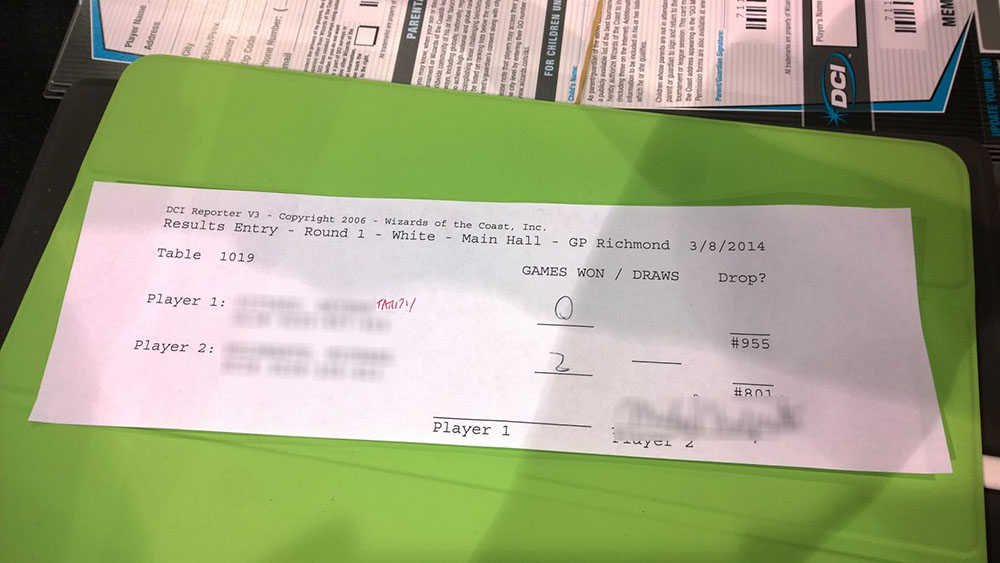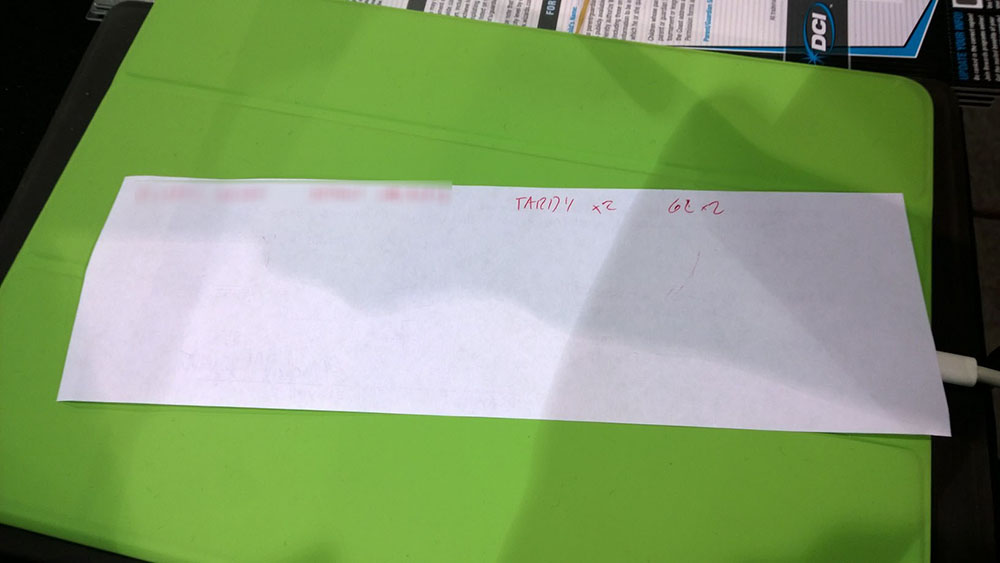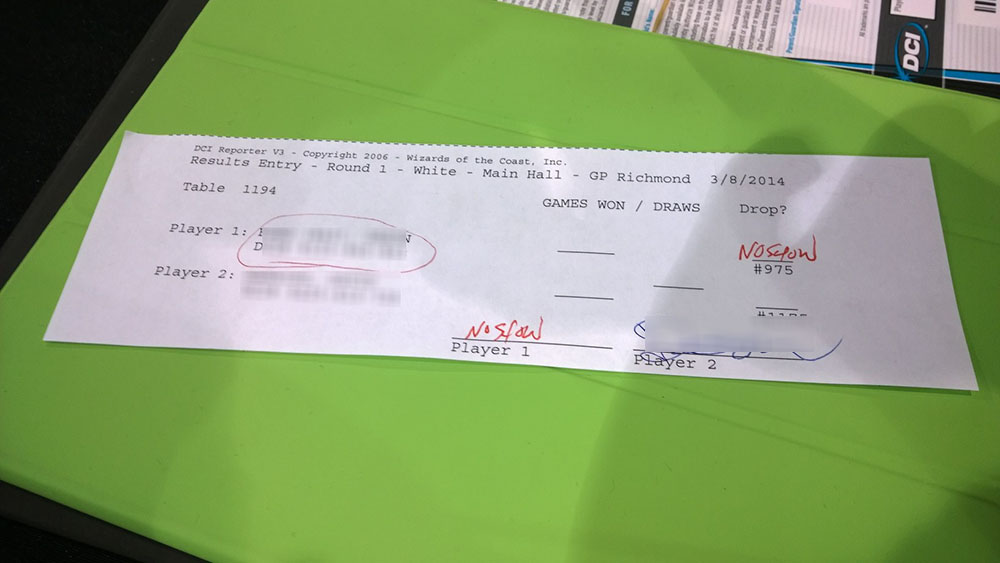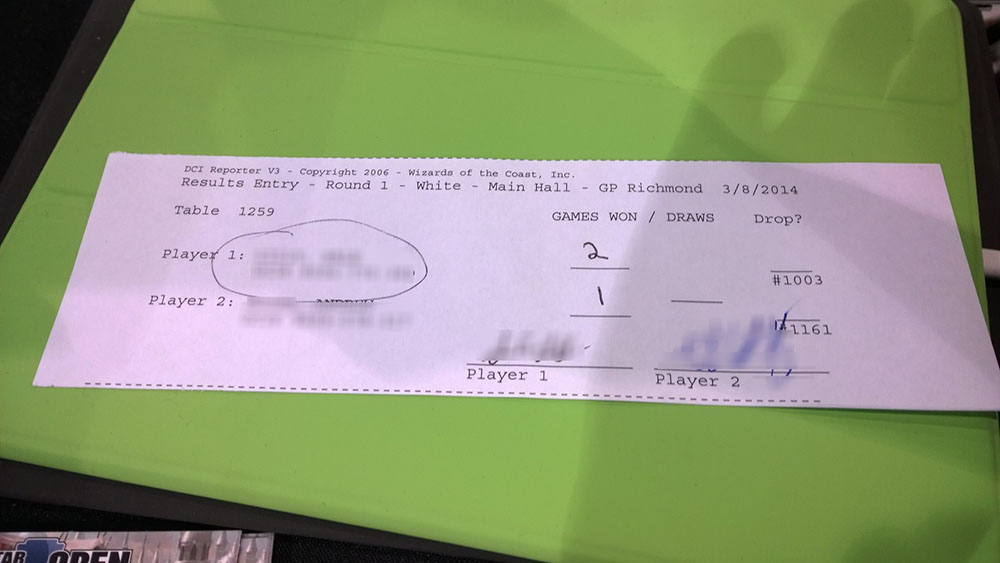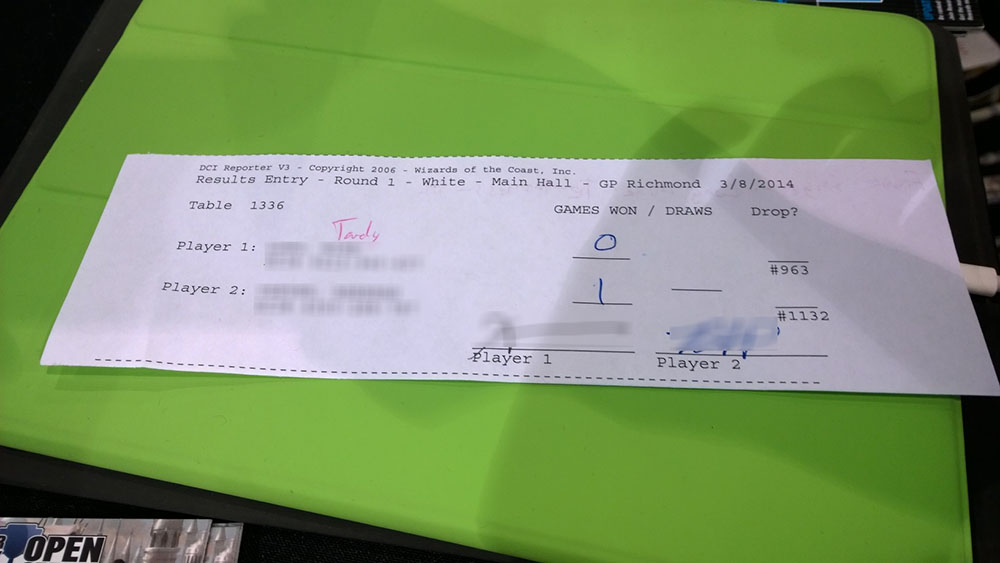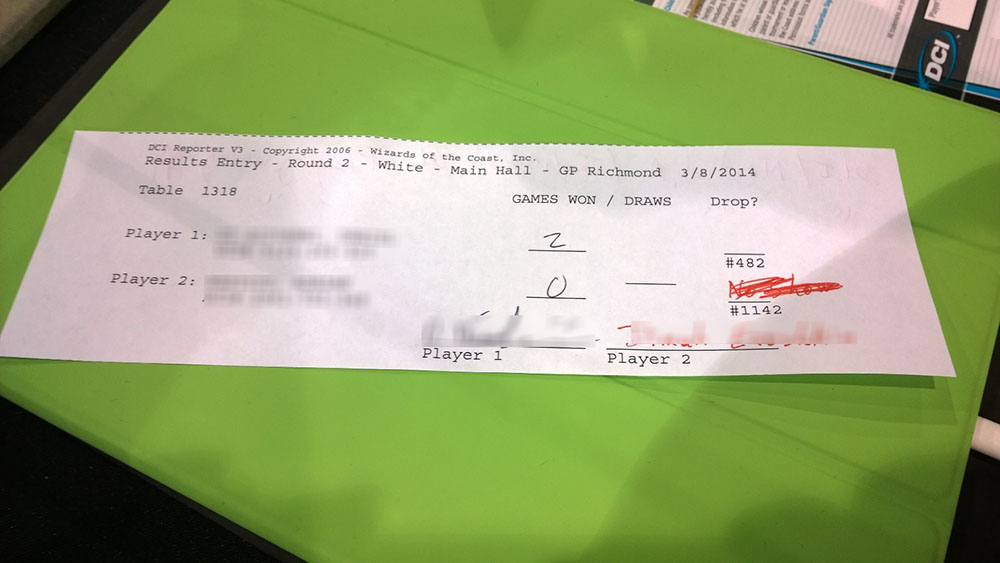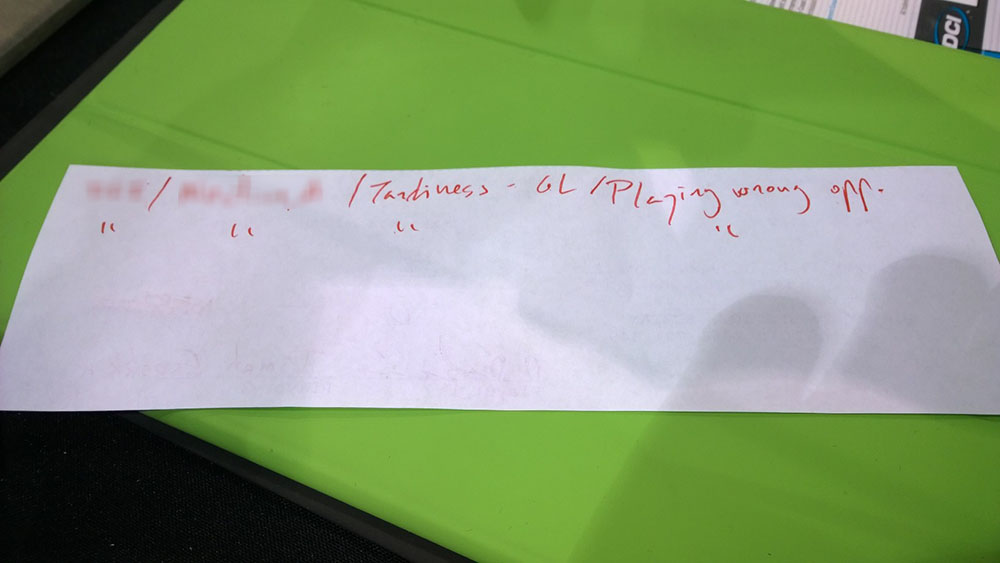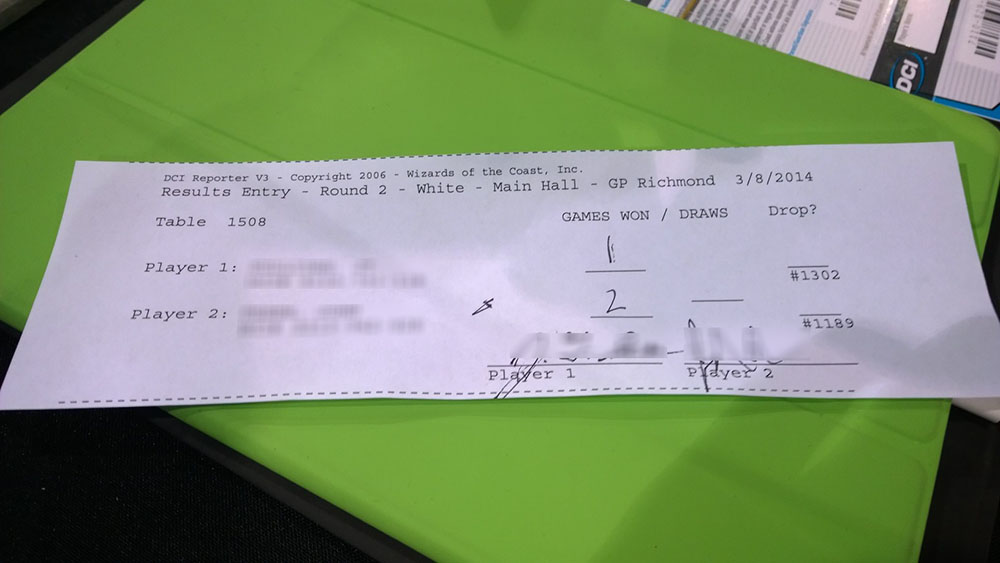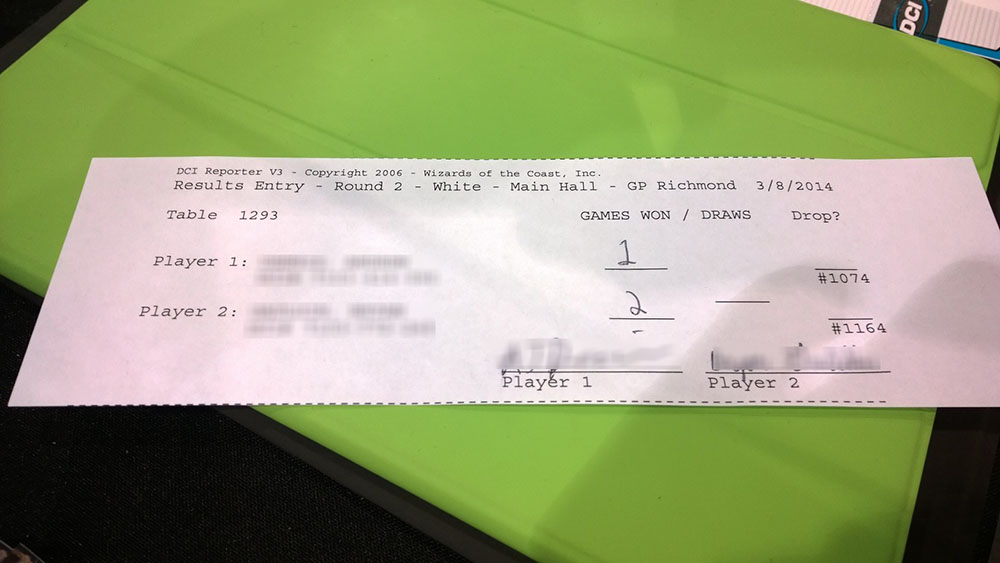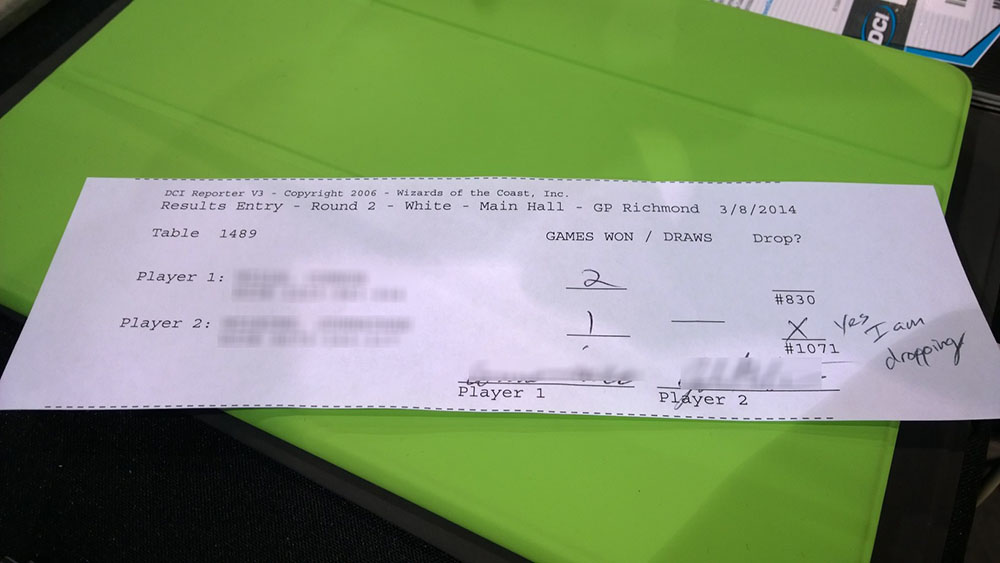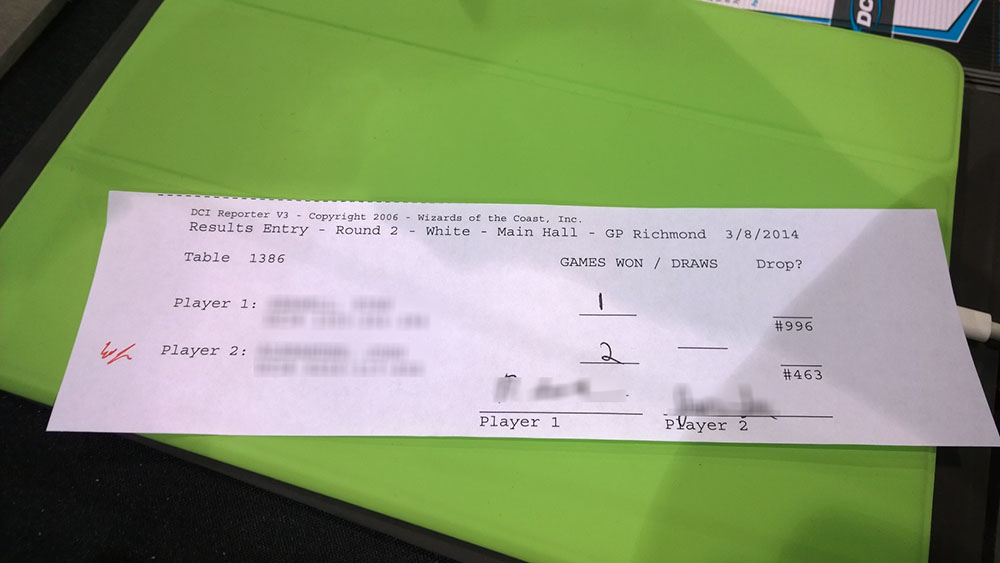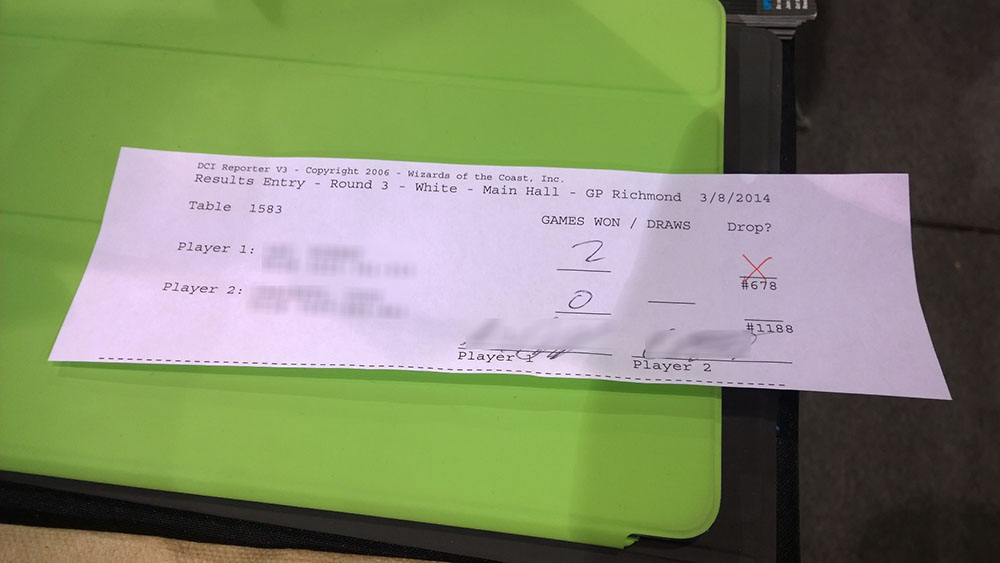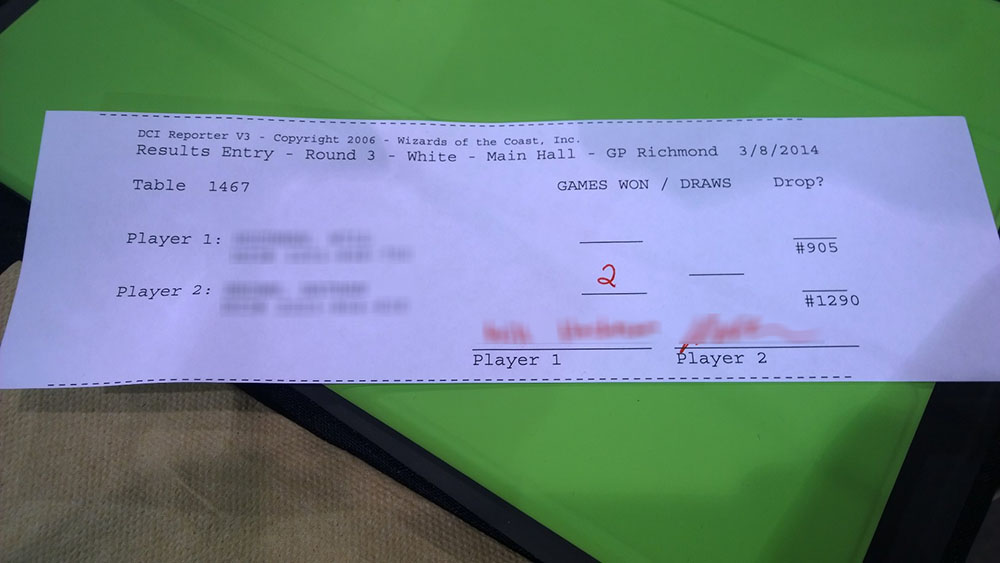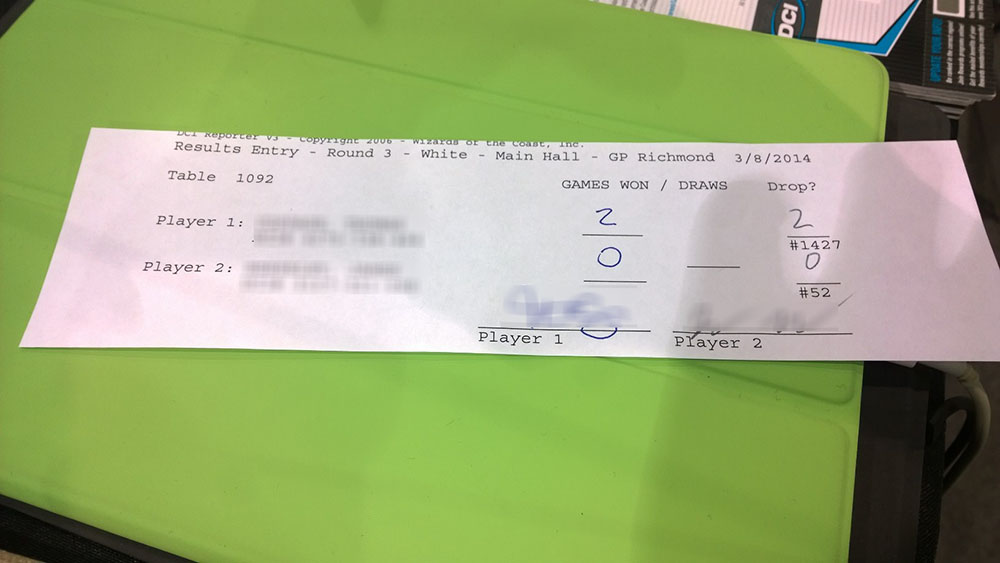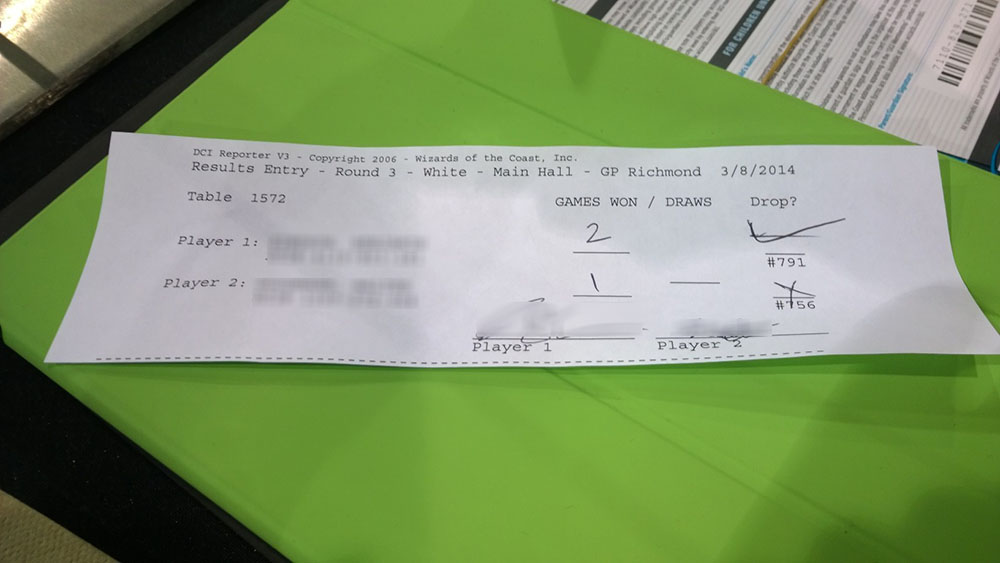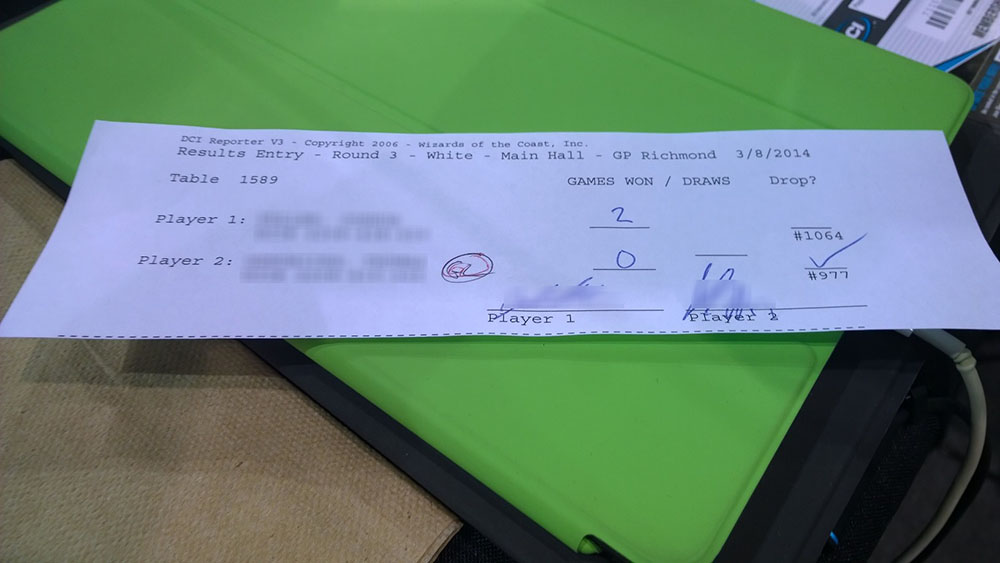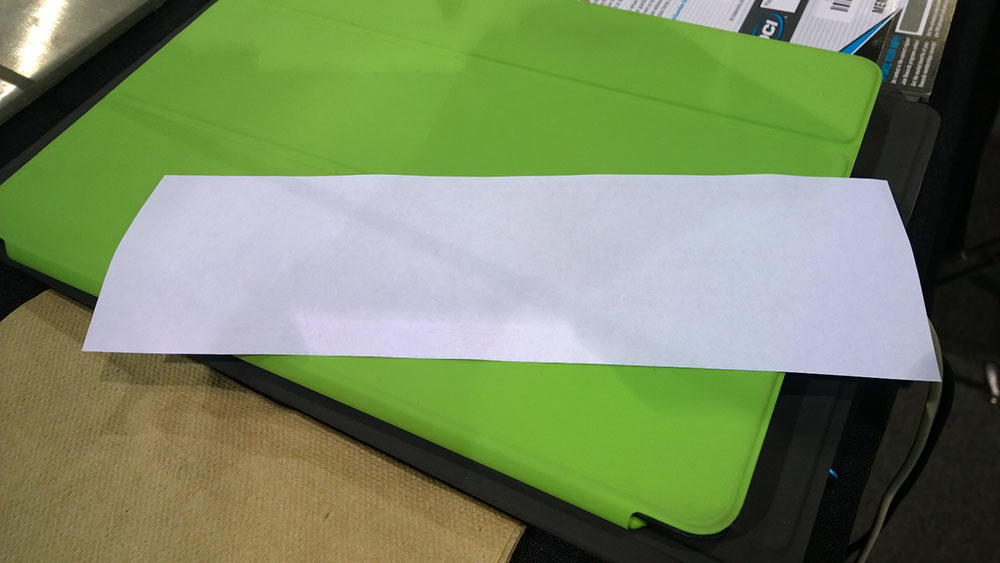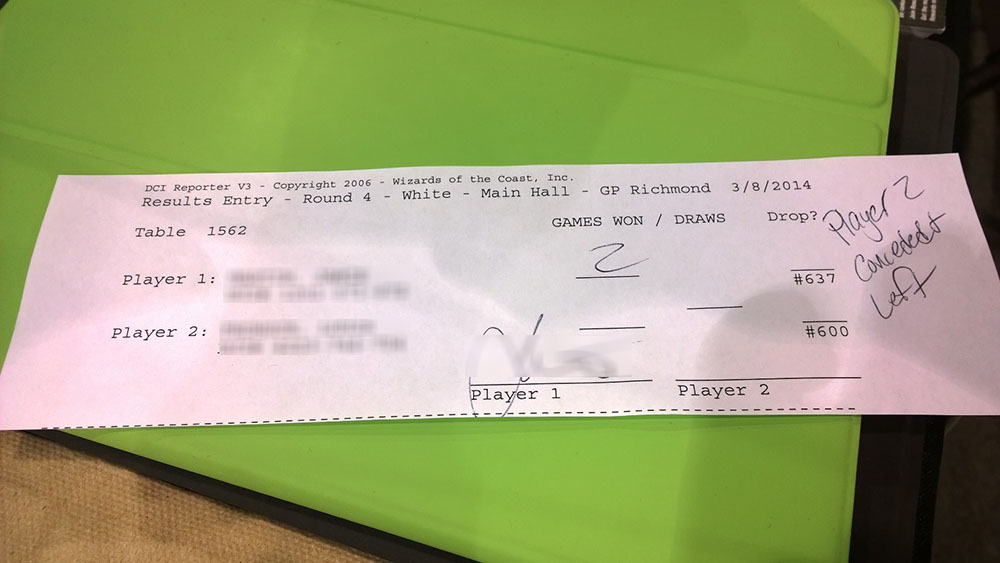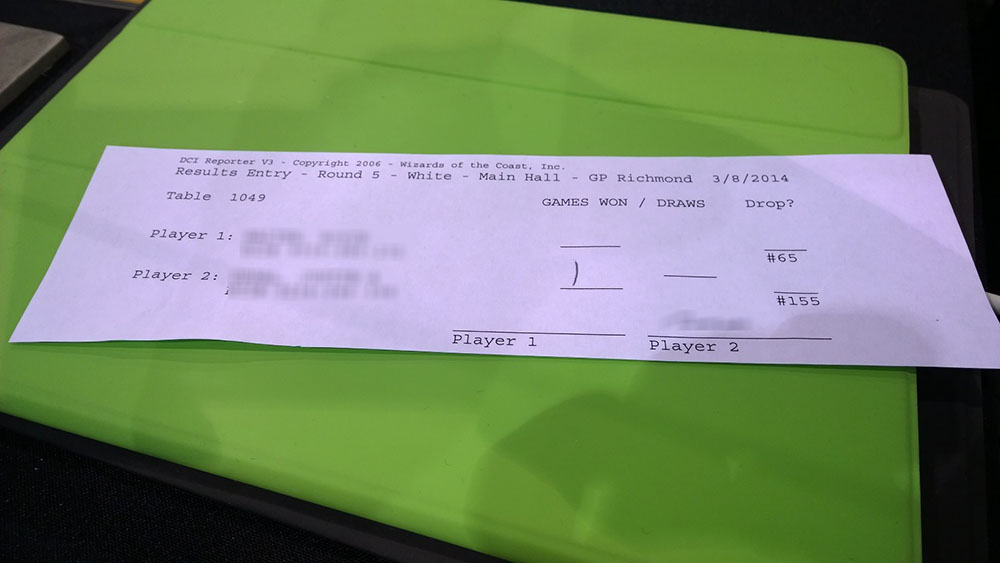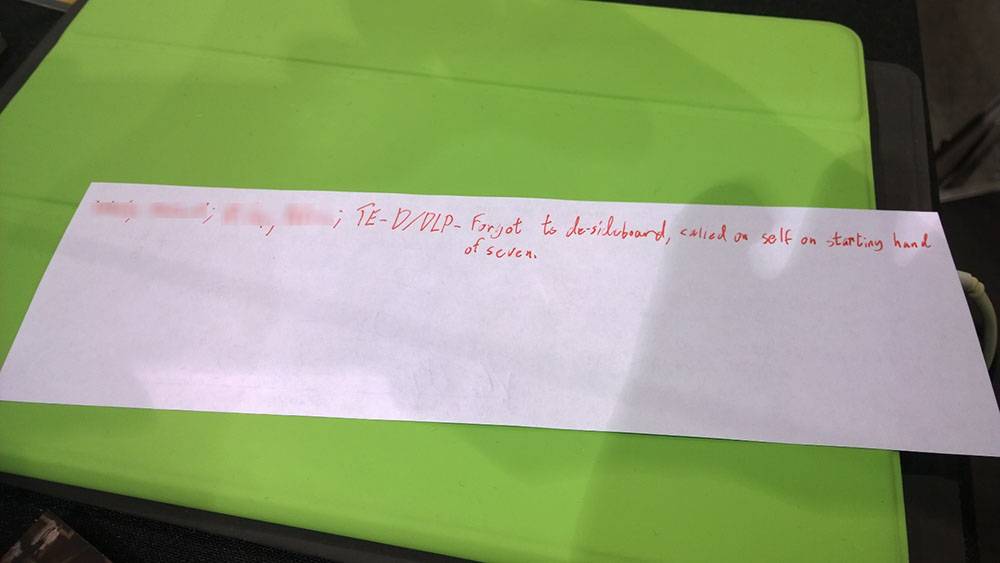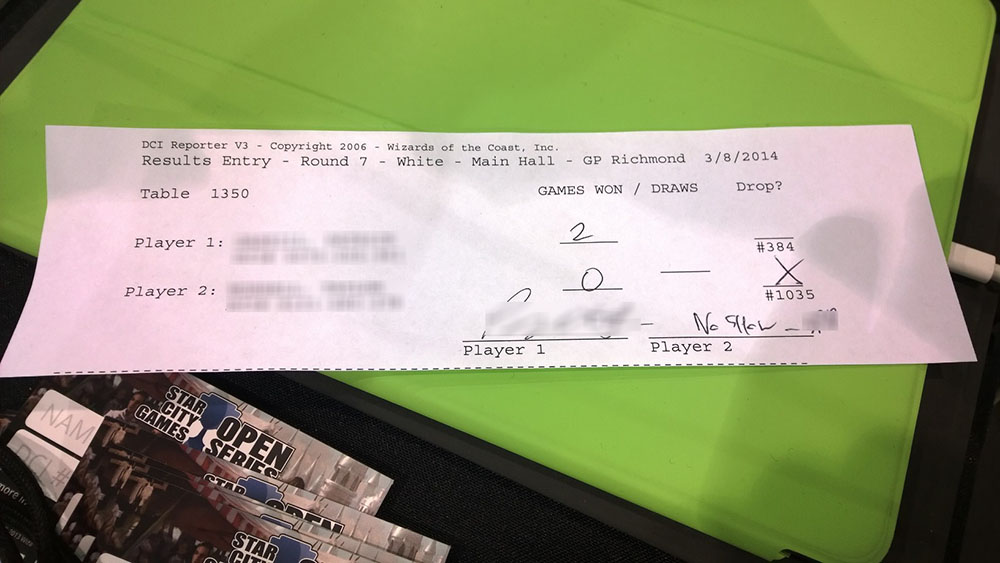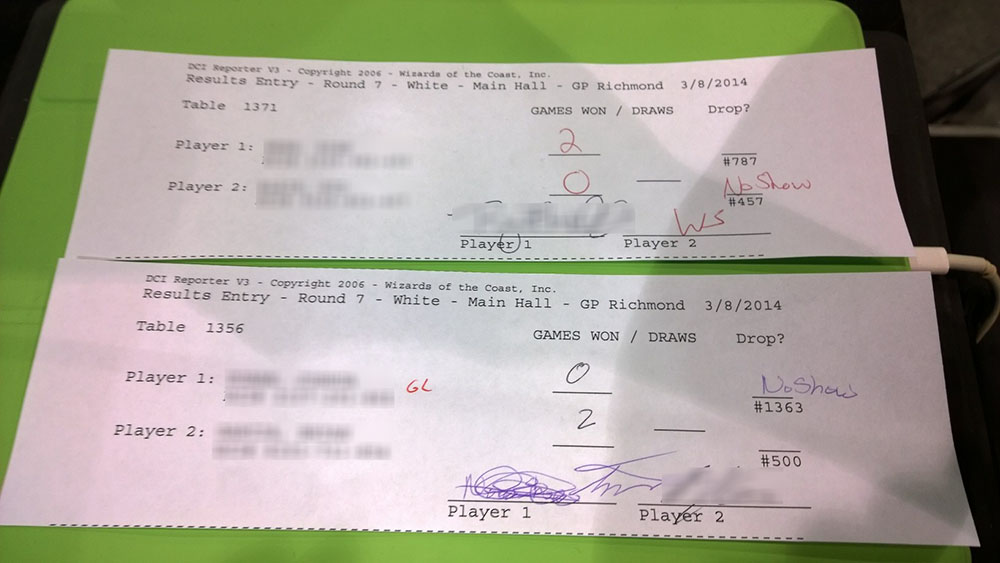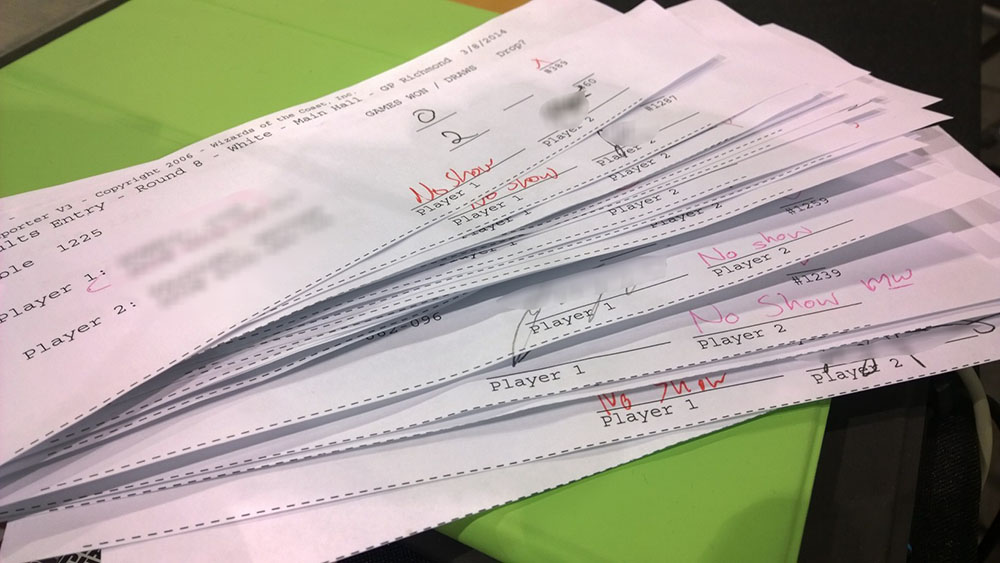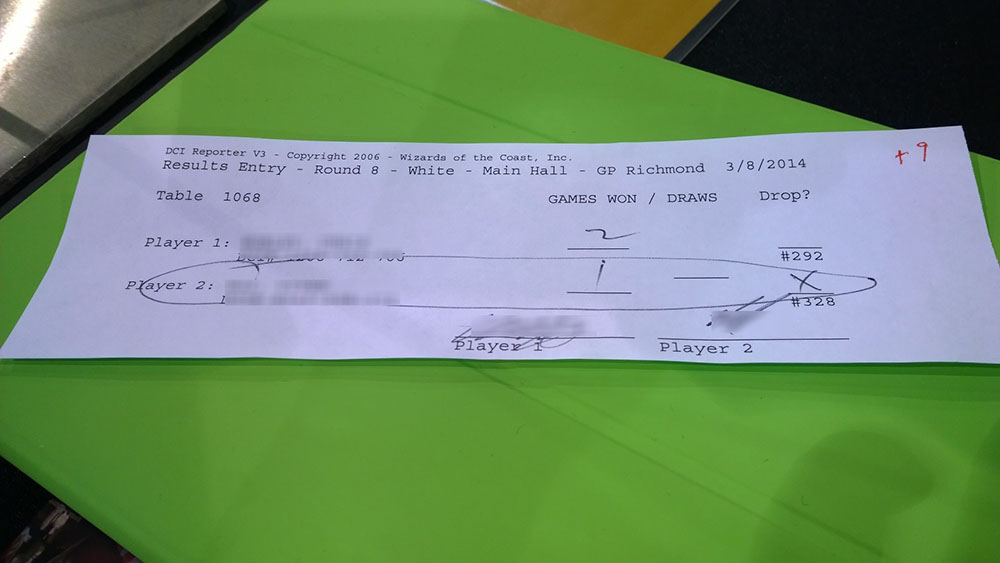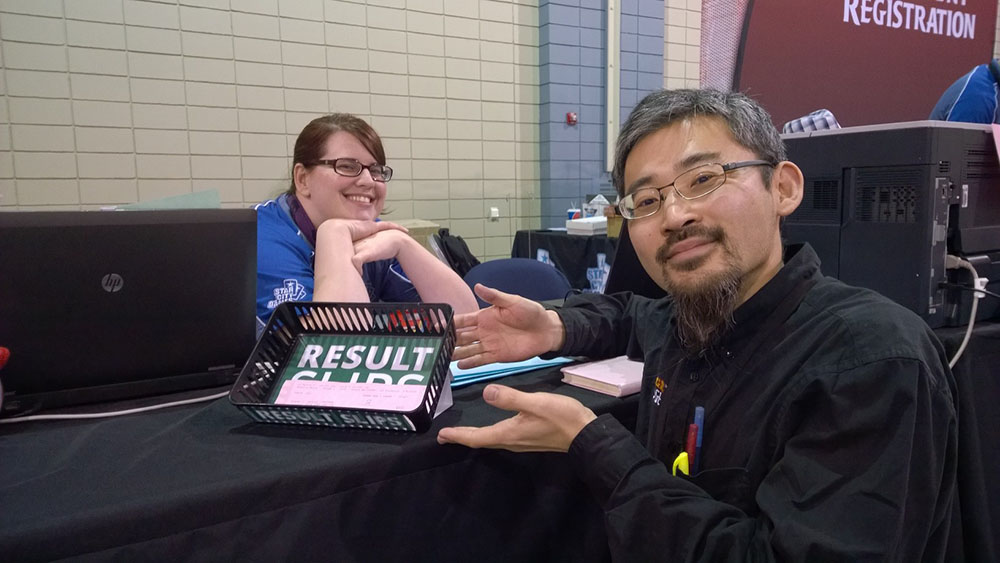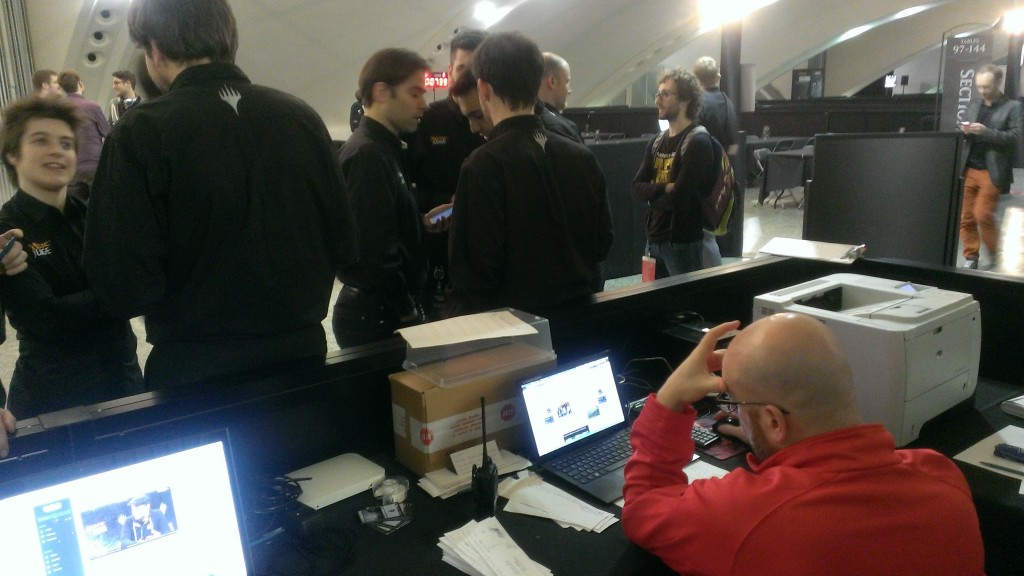Some basic data that might be handy for people to know in the wake of Grand Prix – Richmond (and any future large tournaments).
Some basic ground rules before I get started, though:
1) Much of this stuff was originally devised/sorted out/turned into tools by the European scorekeeping cadre, so consider this blanket credit to them for much of this data. Federico Calo, Martin Golm, and others I’m sure I’m not even aware of should be recognized for doing the best they can with the tools we’ve got. Speaking of which …
2) This is going to be another one of those posts where, “well, the software shouldn’t work that way,” isn’t going to be a valid answer, unfortunately. For now, what we’ve got is what we’ve got and we have to do the best we can under those confines. Arguments that some of these “decisions” aren’t the best possible for tournament integrity are well founded and reasonable, they just aren’t anything that we can address with the tools we currently have on hand. It’s an issue that people know about, though, and it is being worked on.
All righty, let’s go.
First of all, let’s talk about the degrees of large. There are actually two different axes that people are talking about when they refer to large tournaments. In one sense, they’re just talking about a large number of players, and this runs into a potential software limitation that changes how we have to run tournaments that have more than 1998 players. In another sense, they’re talking about those big tournaments that need to be split into multiple flights, which tends to happen because of operational or staffing limitations.
These are two different types of large which are linked, but not the same. A tournament with more than 1998 players must be split, is the only rule – you cannot have an unsplit tournament that size. However, tournaments with less than that can be split or not at the whim of the staff.
For all practical purposes, this means we should talk about three types of tournaments. “Small” (< 1998) unsplit, small split, and large split.
The first of these is straightforward – it looks a lot like your friendly neighborhood FNM, if your store just got bigger and invited a whole lot more people. All of the logistics, rules, tiebreakers, etc … operate basically the same. The one exception is that this tournament is probably being run using DCI Reporter rather than Wizards Event Reporter, which means that you might get hit by the DCI Number checksum issue. Let’s set that aside.
The second are tournaments that stay under the software size limitation, but are split for staffing, space, or other reasons. This was quite common, in the past, in Grand Prix events in Europe, though is less common these days. Through some clever trickery, the aforementioned scorekeepers figured out how to separate out the tournament so that half of the players could be pulled out into a separate self-contained tournament, and then re-integrated back into a cohesive whole for the second day. The key here is that the split is a temporary condition for the first day, and from a calculation and reporting standpoint, the two halves merge into a single event in which we merely artificially bifurcated pairings. Everything otherwise works the same way you might expect a single tournament to work, including tiebreaker math, which will carry forward into the second day.
One quirk I will mention, though – the split does mean that some of the safeguards in place to prevent some irritating situations from popping up don’t work, which requires some extra vigilance from players and staff alike. For example – having the same player in the tournament twice is obviously a problem, not only from a tournament standpoint (we don’t love giving away free byes), but also from a reporting standpoint (since the system kicks this out as obviously illegal). It’s fixable, but non-trivial, since we have to remove the duplicate record of that player having been paired against somebody in the first place. Fortunately, this isn’t an issue because DCI Reporter will notice and reject the attempt to add a person a second time. Except … it can’t always once you’ve split things. So it’s very important that you make sure that you actually are missing before you ask to be added back in. It’s a rare tournament in which at least one person just didn’t pay attention to which flight they were in and went and got inserted into the other one.
Generally speaking, one of the scorekeepers will be primary, and they’ll be able to check both sides, so worst case, you should try and sort out which one that is and ask them to check if you really can’t find yourself, but much better to just be really careful to check the posted list and make sure you aren’t just missing your name (especially if you’re in the right-side column of a page – these lists are often printed with multiple columns in a page, unlike your usual pairings posting).
Finally, we’ve got the mega-giant tournaments, the ones that are two-thousand people and beyond, split into two, if not three or four flights. So far there’s been just the smallest handful of these, but all signs are that this might not be true for too much longer.
Here’s the gist of the issue here. DCI Reporter only supports a total of 2000 (technically, 1998, but who’s counting) players in a single tournament. To make day 1 work, we split the tournament down into manageable chunks that are under this number, but there’s a catch. These are truly separate tournaments that are not associated with each other at all, as the trickery used to bifurcate a single tournament into multiple flights and then recombine them still requires that all of the players who played, regardless of flight, can be inserted into the single combined tournament. The different trick used in this case is to rely on the fact that we haven’t (yet) reached a point where more than 2000 people qualify for the second day, so if we take all the people who make it out of day 1 and put them into a new tournament, we’ll stay under the magic number.
There are, of course, side effects to doing this. First is that we’d like to preserve as much data as we can as we create this new tournament. We can carry forward the points using a trick by which you can assign any number of points in value to a bye, so two placeholder players are created to play each other and then drop (these are the Placeholer Players you might have seen in the results/standings of Richmond) in the first round of the new tournament, and everyone else who qualified is given a bye with a value equal to the points they earned on the first day. This also explains why all the paperwork for round 10 (the first round of the second day) say round 2 on them – round 1 was this dummy bye round.
Tiebreakers, however, don’t work. They’re calculated based on the matches you’ve played and the other players you’ve played against and … oops … we just removed all that to get under the cap. This has caused not a small amount of consternation on Twitter. In technical terms, what happens to tiebreakers in a tournament of over 2000 people (and only in this case) is that your tiebreakers are reset, everyone’s starts day 1 with a bye, and then you play six more rounds. You’re paired based on overall record, though, rather than day two records, which is correct for the tournament at large but can make tiebreakers feel weird depending on whether someone has taken losses on day 1 (which don’t count for tiebreakers) or on day 2 (which do). Here’s the generalized rule that you should remember:
Tiebreakers reward players for playing against players who have performed better during the rounds that count toward tiebreakers.
A good rule of thumb for this is that losing earlier in rounds that count is worse, and losing later is better, but this is just shorthand and isn’t guaranteed (it just tends to mean you play weaker competition for more rounds, but you can’t say this for sure).
The “during the rounds that count toward tiebreakers” is the vital part here. In most tournaments, that’s all rounds and you can just ignore this. In these extremely large events, though, that is specifically referring to day 2.
There’s nitty gritty math involved in the tiebreakers which you can look up in the Magic Tournament Rules if you are so inclined. But the rule of thumb above will get you most of the way there in a practical sense.
Finally – because the match history is erased, we also don’t have a record of who’s played who. This means that playing somebody on day 2 that you played on day 1 of one of these tournaments is allowed and occasionally happened, In Richmond, one pair of players played in both rounds 9 and 10, back to back. Awkward!
Everything else is behind the scenes craziness to get all of these workarounds to actually work and beyond scope here. If you’re curious about anything else or anything else seems odd, though, feel free to ask.
